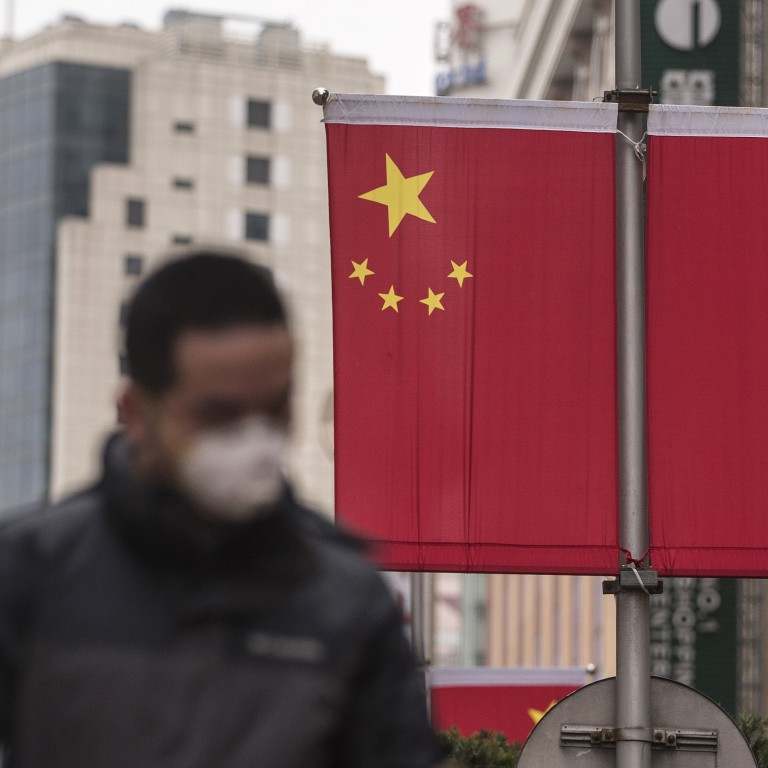
China tries to contain diplomatic impact of coronavirus outbreak
- Observers say epidemic could affect how the country is seen abroad, and it may disrupt upcoming summits with European leaders in Beijing
- Envoys have been seeking to reassure counterparts that government is handling the crisis well
As more people outside China are infected with the pneumonia-like virus, diplomatic observers say the outbreak could affect how the nation is seen abroad, and it may also disrupt upcoming summits with European leaders in Beijing.
The death toll from the new virus strain soared to 106 on Tuesday, with the total number of confirmed cases reaching more than 4,600 worldwide.
A day earlier, Wang told his French counterpart Jean-Yves Le Drian in a telephone call that controlling the outbreak was the “top priority” for the “government at all levels”, according to official news agency Xinhua.
Wang said the epidemic was “controllable and curable” and stressed that China was taking a series of measures to “prevent” the further spread of the virus.
“China is willing to work with other countries, including France, to safeguard the lives of people in China and the world,” Wang was quoted as saying.
The foreign minister delivered a similar message on a call with his Japanese counterpart Toshimitsu Motegi on Sunday.
The coronavirus outbreak, which started in the Hubei capital Wuhan in December, has brought back memories of Sars, which infected more than 8,000 people and killed nearly 800 worldwide 17 years ago. Severe acute respiratory syndrome, which is also a coronavirus, was first reported in China’s southern province of Guangdong before it spread overseas, but Beijing was criticised for its poor handling of the outbreak, which was marked by cover-ups and a reluctance to share information that delayed the emergency response.
High impact, short-lived: how coronavirus could hurt China’s economy
Diplomatic observers said there was more of a sense of urgency to contain this outbreak as China sought to portray itself as a major power, and ahead of key gatherings with foreign leaders in Beijing.
China and the European Union have a summit scheduled for the Chinese capital in March, to be followed by a meeting with the leaders of Central and Eastern European nations in April.
The outbreak has already seriously disrupted daily life in China – including some mainland cities imposing traffic bans – as well as politics. Yunnan and Sichuan provinces and the city of Qingdao, in Shandong, have all postponed their annual legislative meetings planned for February, and there is also a question mark over the National People’s Congress, which is due to convene in Beijing in March.
“But on the other hand if the epidemic situation is serious and will get worse the other 17 participants would clearly understand a Chinese suggestion to reschedule,” said Przychodniak, referring to the “17+1” grouping of Central and Eastern European nations.
“As far as I can say, they are actually trying to transmit the opposite message to the diplomatic community in Beijing, that there is no need to evacuate foreigners from China and authorities are in control of the situation,” he said. “[President Xi Jinping] being a host would also mean a challenge to find another spot in his calendar in the coming months.”
The foreign ministry held a briefing on the coronavirus on Monday, telling diplomats that the crisis was being managed well and there was no need to evacuate their citizens from Wuhan, the outbreak epicentre.
Ma Zhaoxu, vice-foreign minister, said at the briefing that China would address the legitimate concerns of foreigners in the country and ensure their safety, according to Xinhua. He said the government had taken strong and difficult measures that “no other country can do” to curb the spread of the virus.
“The Chinese government has the determination, confidence, and ability to win the battle to prevent and control the epidemic,” Ma said.
China coronavirus: patients are infecting two or three other people, research estimates
Meanwhile, China’s permanent representative to the United Nations Zhang Jun also sought to reassure on Monday, telling UN secretary general Antonio Guterres in New York that his government attached “paramount importance” to controlling the epidemic.
“China has taken rapid and strong measures, putting in place a nationwide prevention and control mechanism,” he said.
It comes as countries around the world are stepping up their response to the coronavirus, as more cases are confirmed outside China.
Zhang Baohui, director of the Centre for Asian Pacific Studies at Lingnan University in Hong Kong, said the diplomats’ remarks reflected Beijing’s aim of portraying itself as a “responsible” power.
He said Beijing wanted other countries to see that it was a “team player” that had taken a “constructive role in global governance”.
Beijing may also be trying to limit any diplomatic impact of the outbreak, he said, noting that if the situation worsened, high-level meetings scheduled for the Chinese capital “would have to be cancelled”.
“I think China may also actually use this occasion to highlight the need for global cooperation,” he said. “The virus crisis falls under the ‘non-traditional security’ umbrella … This public health crisis requires all countries to work together as they do live on the same planet.”


